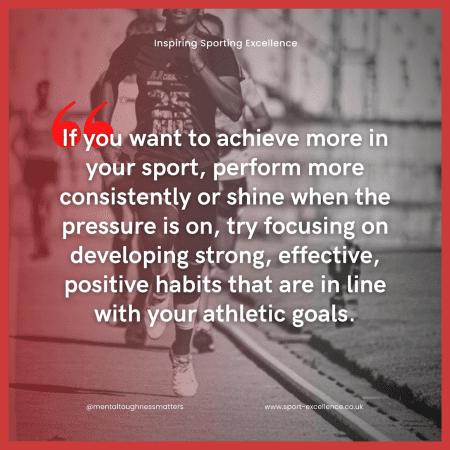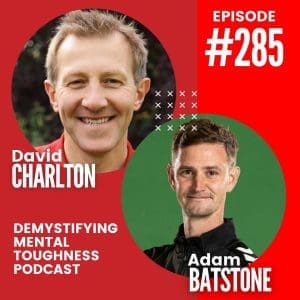27 January 2024

Helping You Gain A Mental Edge
10+ Self-Care Tips That Will Boost Your Performance Levels
What words come to your mind when you think of commitment? For me the first five words that came quickly were; perseverance, goal setter, driven, sacrifices and self-care.
The first four words demonstrate what a lot of people would also think yet the last word self-care is equally important if you are able to remain committed in the long term.
Going back to 2017 when I was trained by Doug Strycharczyk and his colleagues at AQR International to become an accredited Mental Toughness licensee for the MTQ measures. The word stickability was prominent in discussions. Stickability describes the extent to which an individual is inclined to make promises and is determined to keep those promises.
Doug and co also talked about how commitment is a measure of how and why we set goals. That it represents an aspect of mindset that determines what your default response is when asked to do something.
If we think of a highly committed athlete; he or she will believe that they are able to consistently deliver what is needed. A highly committed coach will likely have an interest in numbers and have a focus on measuring performances in some way.
Going back to more words that describe the committed athlete or coach: tenacious, persistent, determined, dogged, diligent and conscientious. Supposing they are naturally mentally tough and are highly committed individuals. Yet, don’t have a great deal of self-awareness.
What are the traps they could fall into?
- The athlete can practice all hours yet not have a plan for improvement.
- The coach may be the first in and last one out but finds it tough to delegate to others.
- The athlete can be very reactive in their choices and can get carried away by the emotion carried over from competitive events and matches.
- The coach can strive for continuous improvement with very high standards so much that they become highly critical of others.
This is why self-awareness is critical, and mental toughness can only get you so far.
Self-awareness then allows you, the athlete or coach to not fall into these difficulties, at least frequently. As you are able to learn your lessons.
One lesson goes back to my original point at the top of the page. Self-care is critical if you are going to be that committed athlete or coach. Without self-care it will be much easier to:
- Give up easily, finding valid reasons in your own head for doing so.
- You may try to ignore setting goals and targets altogether because of overwhelm.
- You may look to strive for easily achievable goals and not set the bar high.
- Get side-tracked and allow distractions to stop you in your tracks.
- Lack self-discipline.
So far in 2024 a lot of my content that I’ve shared has been about building helpful habits that you can integrate into your daily routines. So here are some more when we consider self-care for those of you who see themselves as committed athletes or coaches:
Tip 1: TUNE INTO THE LATEST DEMYSTIFYING MENTAL TOUGHNESS PODCAST – EPISODE 216
This week’s episode of Demystifying Mental Toughness can help you stay in optimal condition for longer so that you can play your best more consistently. Where the First Team Strength and Conditioning Coach at Newcastle United, Nick Grantham, shares with me strategies so that you can prioritise your rest and recovery.
Tip 2: THE PREVIOUS WEEKS PODCAST EPISODE – LISTEN TO FENWICK RIDLEY IN EP215
David talks to Team GB Ice Swimmer, and Owner of H2O Trails, Fenwick Ridley. We chat about ice swimming and mental toughness, cold water immersion and its effects on the mind and body. How cold water can have a positive impact on mental health and help you embrace the feelings of discomfort.
Tip 3 : OUR ARCHIVES ARE WORTH IS ONE DIP INTO TOO WHERE THE FOLLOWING PODCAST EPISODES WILL CONTRIBUTE TO YOUR SELF CARE WITH MANY HELPFUL HABITS

OTHER THINGS TO CONSIDER TO HELP YOU OR YOUR ATHLETES WITH THEIR SELF CARE INCLUDE:
Most professional clubs, academies and governing bodies managerial staff are well versed in trying to ensure that their players or athletes are technically skilled and tactically well versed. As well, making sure that their athletes have and continue to develop the necessary physical components so that they can perform at their peak is seen as important for many, too. However, where many find themselves lacking is in having good processes in place and creating a culture that addresses the importance of mental health in sport for their players or athletes.
This article sheds more light on the important topic and has some helpful information in for senior decision makers in these clubs and organisations.
Life can throw us off track when we least expect it whether you are a professional athlete, a young athlete with potential or an experienced coach – things happen that are out of your control and they can mess with your emotions and decision making. This then can impact negatively on your performances and mental health.
Situations that I’ve seen it happen and have supported athletes, coaches and business professionals include when you’ve been dropped from a squad, when you decide to retire, when you move clubs, if you suffer a serious injury, if you lose a loved one or have a relationship break up… the list goes on.
Feel free to read my thoughts on the topic with 3 tips to help you should you be dealing with a current transition.

A USEFUL BOOK WITH AN EMPHASIS ON SELF CARE AND STRESS MANAGEMENT
Find ways to get away from your phone, Ipad, Tablet or XBOX. This will help you switch off and wind down more easily. I enjoyed listening to the audio book Stolen Focus: Why You Can’t Pay Attention By Johann Hari. He offered some great advice and reasons why we are so dependent on technology these days. One piece of advice was to purchase a K-Safe otherwise known as a Kitchen Safe. I duly did and find it has helped me no end to switch off. Where on an evening I lock the phone away for 10 hours + at a time and sometimes during the day for periods too when I don’t want to be contacted or distracted.
Here’s a link to the Kitchen Safe I use.
AND CHECK OUT THE FOLLOWING ACADEMIC PAPERS, PODCASTS AND VIDEOS
Self-Care Strategies of Athletic Trainers by Lindsey E. Eberman, Justin P. Young et al.
The Sport Psych Show: #231 Danielle Cormier & Dr Kent Kowalski – Self-Compassion in Sport
Why Self Care is Important in High Performance Sport? – UK Sports Institute
The Missing Ingredient in Self Care – Portia Jackson-Preston
SPORT SPECIFIC RESOURCES FROM OUR SPORTS PSYCHOLOGY LIBRARY TO HELP YOU
BUILD YOUR RESILIENCE LEVELS IF YOU PLAY FOOTBALL OR SOCCER
We’ve recently started a regular newsletter with tips and tricks for those interested in the psychology of football or soccer. Feel free to sign up today.
3 WAYS TO LEARN MORE ABOUT OUR WORK:

Best Wishes
David Charlton
Online Sports Psychologist | Mental Performance Coach who supports many highly motivated athletes, young and old, developing their skills or who are already highly skilled so that they gain a mental edge and get the most from their talent across the globe from USA/Canada to Great Britain and Ireland to UAE, South Africa, Australia and New Zealand, using ONLINE Video Conferencing.
Managing Director – Inspiring Sporting Excellence
Host of Demystifying Mental Toughness Podcast
Founder of The Sports Psychology Hub
Author of The Mental Edge
With over a decades’ experience supporting athletes, coaches, parents and teams to transfer their skills from training to competitive situations, under pressure.
T: +44 7734 697769







